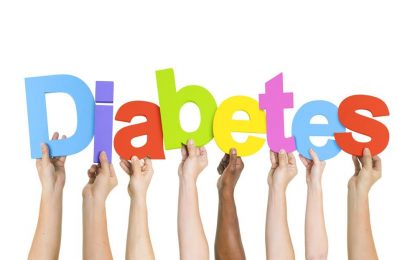Wouldn’t it be great to have a member of your health-care team who listened to you, asked you what you want and need, and then helped you to get there? Someone who didn’t tell you what to do, but rather helped you figure out how to do it? That person is now entering the health-care arena: the integrative health coach.
Integrative health coaching was developed at Duke University’s Integrative Medicine Center to fill an important gap in the health-care system. Typically in today’s health-care system, a problem is diagnosed and a course of treatment is prescribed, but little is offered to help individuals succeed in the goals that are essential to both their treatment and their overall health. Integrative health coaches help bridge the gap that often exists between a doctor’s assessment and a patient’s desired outcomes. They can help you clarify your goals, highlighting your strengths and weaknesses, to help you develop a plan to achieve them. In a system geared toward treating disease, integrative health coaches strive to support the whole person.
The coach’s role
Take, for example, Susan. Susan has recently been diagnosed with Type 2 diabetes, and her doctor tells her to lose weight and eat less carbohydrate. She tells him that she is driving more for her new job and relying more on take-out meals. She has less time at home and is feeling really stressed. The doctor is sympathetic and understands that Susan is busy, so he refers her to a dietitian and an integrative health coach and asks her to come back in three months.
Susan’s doctor tells her what she needs to do: eat less carbohydrate and lose weight. Her dietitian may tell her what to eat or even how to make smart choices when eating out. But her integrative health coach helps Susan figure out how to make the changes she needs to make and helps her address the other concerns she expressed to her doctor, namely stress and her desire for more time at home. The health coach looks at the whole picture, asking questions that help Susan create a plan that meets her needs.
Integrative health coaching aims to bring about lifestyle changes by providing the support necessary to adopt healthier behaviors for the long term. In one study of health coaching and Type 2 diabetes, coaching was found to help reduce stress, increase exercise, and significantly reduce HbA1c levels (indicating improved blood glucose control). Duke’s health coaching model also emphasizes mindful awareness, or the practice of paying attention to the present moment. To change, a person needs to be aware of his values, needs, and what gets in the way of change. Meditation is often used to increase mindful awareness, and it can additionally help improve focus, strengthen the immune system, and reduce pain, stress, and even blood pressure level.
Managing goals
Let’s go back to Susan. Susan meets with her coach and identifies several areas she wants to address to meet her health goals. She wants to add some regular exercise, eat out less, and reduce stress in her life. With her coach, she breaks these down into SMART goals: goals that are specific, measurable, action-oriented, realistic, and time-based. For example, a specific goal for Susan is to eat out less. This goal is measurable; she can keep track of how many times she eats out each week. It is action-oriented because to accomplish this goal, Susan will pack a lunch three days a week, on the days she has to travel for work. This is realistic; Susan feels confident she can pack her lunch on these days. And Susan’s goal is time-based; she will start next week.
Often, goals are things a person doesn’t really want to do: “I can make healthy choices at the cafeteria, but I don’t really like the food there.” “My doctor says I should do strength training to increase my insulin sensitivity, but I don’t like the gym and I don’t know what to do with weights.” In these situations, a health coach can help you overcome your initial hesitance to act by showing that there are many ways to achieve your goals.
A coach will remind you to continually evaluate your goals by asking the following questions:
• Are you confident that this plan of action will work?
• How specific can you be in your planning? Visualize, for example, packing your lunch or making healthy choices at the cafeteria.
• Did your plan work? What got in the way?
• What can you do in the future to avoid or overcome the obstacles you’ve encountered? How might you approach your goal differently?
• What value does this change hold for you? What will happen if you do nothing?
Key coaching skills
A good coach possesses several skills that are key to helping others realize their health goals. These include fostering mindful awareness, or helping a person to pay attention to the present moment. They also include listening actively and withholding judgment; a coach is there to help, not to blame or give advice. A coach should know how to ask questions that help you clarify your goals and priorities. By asking the right questions, he should be able to facilitate a change in perspective, so that you can find new motivation, especially when you feel stuck. (You can learn to do this on your own, too.) A coach should support and encourage a positive approach, knowing that positive self-talk leads to self-improvement. And a coach should acknowledge both your successes and your perseverance even when you’re not successful.
To help Susan formulate an action plan to meet her goals, her coach asks her to make a list of what really stresses her out. For Susan, the list includes remembering to check her blood glucose level after meals, driving in traffic, making dinner when she gets home late, and not having any time to herself.
Susan’s coach then asks her to consider what she can do to reduce stress in each of these areas. What steps can she take right away? Susan can’t change her commute, but she decides to turn off the local news and traffic report and listen to music instead. She decides that some meals could be made simpler, like “breakfast for dinner.” And at her request, her husband agrees to cook once or twice a week. Instead of checking messages on her smartphone constantly, she decides to try checking them just twice a day, and never before 8 AM. If she doesn’t check her e-mail in the morning, Susan has time for 15–20 minutes of meditation; she remembers how rejuvenating meditation used to be for her. Finally, she decides to set an alarm on her phone to vibrate after dinner to remind her to check her blood glucose, so that she won’t be thinking about it throughout dinner.
Creative solutions are unique to you – for Susan, it was breakfast for dinner and a timer to keep her from worrying about checking her blood glucose. A coach should help you explore what works for you, keeping in mind that you have your own values, habits, strengths, and weaknesses.
Often one of the biggest stumbling blocks, where a coach can be critical, is prioritizing your goal. Habits are often comfortable even if they are unhealthful. Reminding yourself of the value a lifestyle change has for you – such as not developing diabetes complications, maintaining your independence, being happier, or having more energy – will help you stay on course. A good coach can help you create an action plan that relies more on positive motivations than on sheer willpower.
Coaching yourself
If you’re not ready to sign up with an integrative health coach right now, try going through the coaching process with yourself. Consider the areas of your life that most affect your health and well-being. What is your vision of where you would like to be? Where are you now? In what way do you feel ready to act?
For the area in which you feel ready to act – for example, changing your eating habits, learning to use an insulin pump, tracking your blood glucose more closely, reducing stress, or exercising more – define some SMART goals: specific, measurable, action-oriented, realistic, and time-based.
Be specific. In addition to having a specific goal (“I want to exercise five days a week”), make a specific plan. Schedule your workouts in your calendar. Visualize driving to the gym after work, putting on your workout clothes, and feeling good about yourself afterward on the drive home.
Identify obstacles. What might get in the way of your planned actions? How can you get around these barriers? Be creative, and withhold judgment. If your plan didn’t work, that’s OK. What else might work? How might you avoid the obstacles next time?
Acknowledge your successes. Even as you identify the parts of your plan that aren’t working, take some time to praise yourself for what you’re doing right – even if you’re tempted to think that it’s not very much. Practice positive self-talk, replacing negative thoughts with positive ones. Remember that it takes three positive thoughts to counter every negative one; that’s how powerful negativity is.
Be mindful. Practice being present in the moment. Pay attention to your feelings in relation to your body. When you are stressed or anxious, do you tense up? Try relaxing your shoulders and taking a few deep breaths, and notice how your mood can change. Take the time to cultivate a sense of mindfulness by taking a meditation class, trying a guided meditation CD, or looking up some of the books listed in “Resources.”
How to pick a coach
There is currently no national certification for health coaching. The National Consortium for Credentialing Health and Wellness Coaches (http://ncchwc.org) has been formed by major stakeholders in health and wellness coaching to develop a national standard for certification programs.
Integrative health coaches are trained and certified by Duke Integrative Medicine at Duke University. Coaches certified by Duke Integrative Medicine pass an oral and written exam and must have completed a minimum of 100 coaching hours. Uncertified integrative health coaches will have finished the foundation class but not the certification requirements. Some health coach programs require similar training, but many do not.
Look for health and wellness coaches who have had formal training. Ask if a coach’s program is recognized by the International Coaching Federation; this group identifies programs that have agreed to follow their code of ethics. Check online to see what the coach’s program involved. Some programs are offered online and some, like Duke’s, require classroom time. Ask about the program’s or the coach’s coaching philosophy. Duke, for example, stresses mindfulness and a whole-person approach. Other programs or coaches may focus on one area, such as nutrition or exercise.
Health and wellness coaching is a new field, but do ask about experience. In a new or potential coach, watch out for advice-giving; advice-giving is not coaching. Is the coach listening to what you want to accomplish, or does he have his own agenda? Does the coach offer a free introductory coaching session? Remember that since coaching can be done in person or by phone, you do not have to limit yourself to coaches who are geographically close to you. Sometimes the personality or style of a coach just isn’t a match, and if that’s the case, try another coach. There has to be trust in the coach—client relationship; you should feel comfortable with your coach.
Some corporations are beginning to offer health or wellness coaching. Tracy Gaudet, the former director of Duke Integrative Medicine, is now Director of Patient Centered Care and Cultural Transformation at the Department of Veterans Affairs. The VA will be integrating health coaching into its health-care system, and insurance companies and health-care networks are also employing health coaches. The YMCA also offers a diabetes prevention program based on health coaching (www.ymca.net/diabetes-prevention). Keep watching; more health coaches will be coming your way soon!




